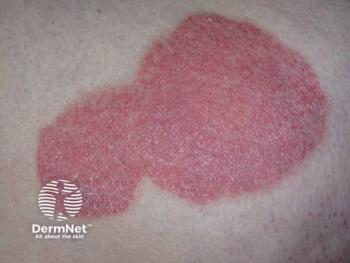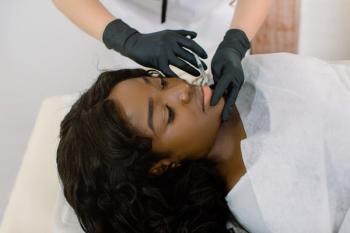
New Aveeno Report Reveals 71% of Adults Have Sensitive Skin
State of Skin Sensitivity Report raises awareness of the causes of skin sensitivity and its effect on the mind.
Aveeno recently revealed results from its first-ever State of Skin Sensitivity report that examined the causes of sensitive skin and the connection between the body, mind, and skin.1 Results show that 71% of adults identify as having sensitive skin, which is a 55% increase in the last 2 decades. In a time of body positivity across mainstream culture, sensitive skin affects how adults view their skin and themselves. Aveeno’s report also focused on how common skin conditions can influence the quality of life and emotional well-being of adults with sensitive skin.
Findings from the report include:
- 1/3 of patients with skin diseases like acne, atopic dermatitis, psoriasis, and rosacea are estimated to struggle with emotional disorders, including anxiety and depression
- Approximately 50% of adults with moderate-to-severe atopic dermatitis reported that it affects social functions, sleep, work productivity, leisure activities, and family relationships
- 90% of patients with rosacea report that their condition lowers their self-esteem
- Sensitive skin is equally common across all ethnicities
- More of Fitzpatrick phototypes I and III report having sensitive skin than having non-sensitive skin, and phototypes IV, V, and VI more frequently identify as having non-sensitive skin
- Current smokers more frequently identify as having sensitive skin, whereas more nonsmokers report having non-sensitive skin
The State of Skin Sensitivity Report was an online survey distributed to 1000 participants (800 females, 200 males, aged 18-65 years old) with self-declared sensitive skin consumers of varying ethnicities.
After participating in the study, consumers believe stress and ingredients cause the majority of skin reactions. Those who identified as extremely sensitive were 200% more likely to have been diagnosed with eczema, rosacea, acne, or allergies than those who identified as slightly sensitive. Itch is the most commonly reported symptom of sensitive skin, followed by redness and dryness. Out of the study participants, 79% reported that their sensitive skin remained constant or worsened over time, and 65% reported they had sensitive skin before the age of 30.
To encourage more discussions of sensitive skin, Aveeno is asking consumers to share their sensitive skin journeys on social media and use the hashtag: #ProudlySensitiveSkin to highlight consumer experiences with skin conditions.
Reference
- Aveeno releases new report revealing that 71% of adults have sensitive skin. Aveeno. Published October 25, 2022. Accessed October 26, 2022.
https://www.prnewswire.com/news-releases/aveeno-releases-new-report-revealing-that-71-of-adults-have-sensitive-skin-301658252.html?tc=eml_cleartime
Newsletter
Like what you’re reading? Subscribe to Dermatology Times for weekly updates on therapies, innovations, and real-world practice tips.











